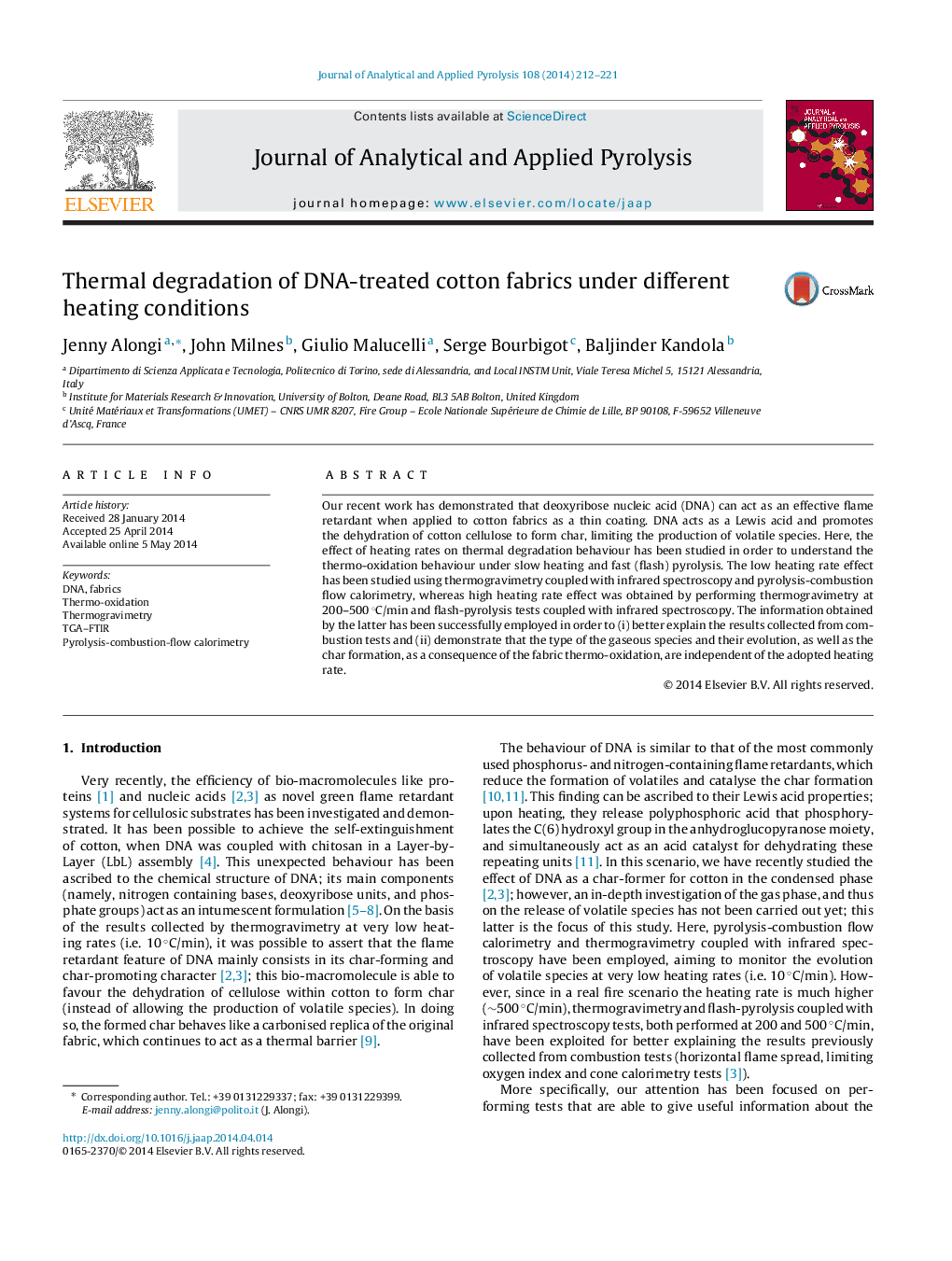| کد مقاله | کد نشریه | سال انتشار | مقاله انگلیسی | نسخه تمام متن |
|---|---|---|---|---|
| 1196678 | 1492969 | 2014 | 10 صفحه PDF | دانلود رایگان |

• The thermo-oxidation of cotton and cotton treated with DNA was investigated.
• At low heating rates, DNA favours cotton dehydration instead of depolymerisation.
• At high heating rates, DNA favours cotton dehydration instead of depolymerisation.
Our recent work has demonstrated that deoxyribose nucleic acid (DNA) can act as an effective flame retardant when applied to cotton fabrics as a thin coating. DNA acts as a Lewis acid and promotes the dehydration of cotton cellulose to form char, limiting the production of volatile species. Here, the effect of heating rates on thermal degradation behaviour has been studied in order to understand the thermo-oxidation behaviour under slow heating and fast (flash) pyrolysis. The low heating rate effect has been studied using thermogravimetry coupled with infrared spectroscopy and pyrolysis-combustion flow calorimetry, whereas high heating rate effect was obtained by performing thermogravimetry at 200–500 °C/min and flash-pyrolysis tests coupled with infrared spectroscopy. The information obtained by the latter has been successfully employed in order to (i) better explain the results collected from combustion tests and (ii) demonstrate that the type of the gaseous species and their evolution, as well as the char formation, as a consequence of the fabric thermo-oxidation, are independent of the adopted heating rate.
Journal: Journal of Analytical and Applied Pyrolysis - Volume 108, July 2014, Pages 212–221